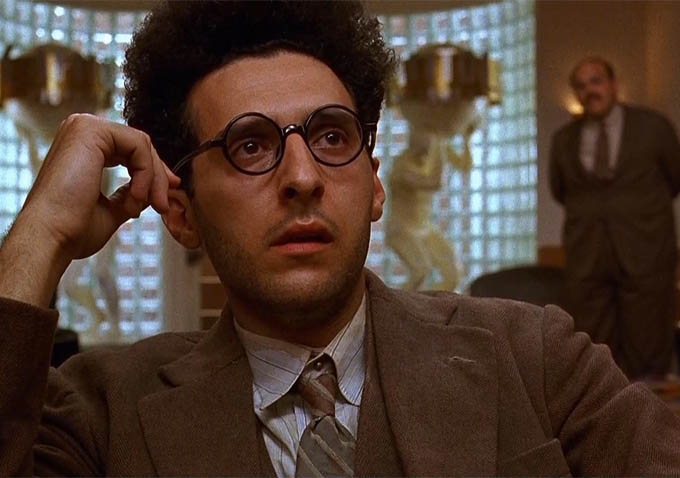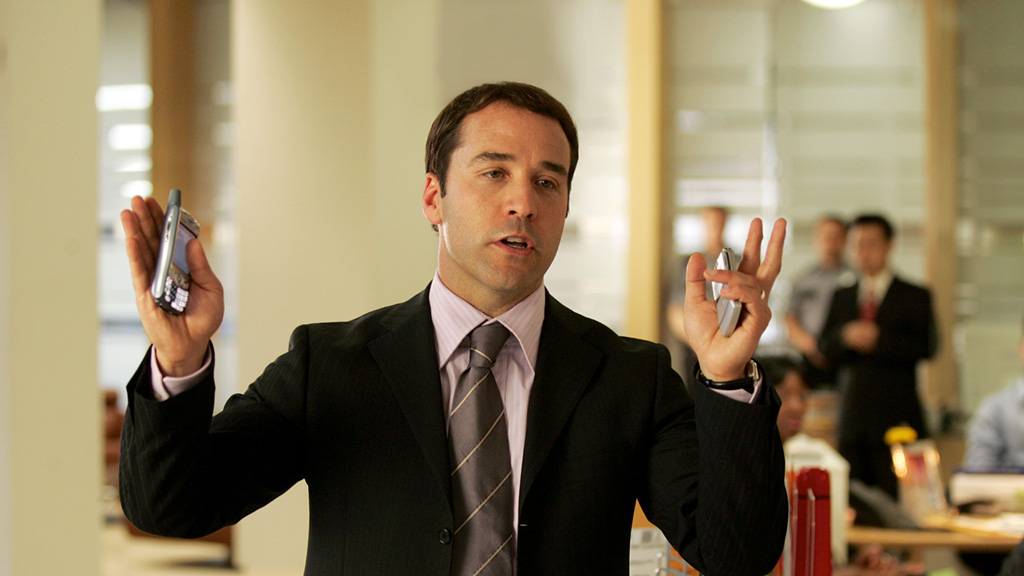By providing your information, you agree to our Terms of Use and our Privacy Policy. We use vendors that may also process your information to help provide our services. This site is protected by reCAPTCHA Enterprise and the Google Privacy Policy and Terms of Service apply.
5 Questions You Were Too Afraid to Ask About Being a Screenwriter

 For those hoping to break in, the world of screenwriting can seem like a black box. Unless you know industry insiders or have an agent, your first screenplay’s journey from Final Draft to production will be an unparalleled challenge. That’s why screenwriting organization The Black List teamed up with Film Society of Lincoln Center in New York to answer your burning questions.
For those hoping to break in, the world of screenwriting can seem like a black box. Unless you know industry insiders or have an agent, your first screenplay’s journey from Final Draft to production will be an unparalleled challenge. That’s why screenwriting organization The Black List teamed up with Film Society of Lincoln Center in New York to answer your burning questions.
The panelists—Chris Sparling (Cannes 2015 entry “Sea of Trees,” directed by Gus Van Sant), Shari Springer Berman (“American Splendor,” “The Nanny Diaries,” “Ten Thousand Saints”), Michael Zam (“Best Actress”) and Lara Shapiro (“The Americans”)—joined moderator Franklin Leonard, creator of The Black List, to discuss everything from finding the right agent to when it’s time to quit your day job.
1. Do I have to live in L.A. to have a career as a working writer?
LA vs. NY: It’s a big quandary for those seeking a career in entertainment. While L.A. is inarguably the epicenter of the film industry, many writers prefer the creative, art-based community of New York. “I like being in the New York bubble,” said Shari Springer Berman. “It allows me to write and not think about the business end, which clogs your brain instead of thinking about whatever you’re writing.” Lara Shapiro concurred: “When I go to L.A. I’m in battle mode on the pitch circuit.”
Many of the panelists also remarked on the benefits of the New York indie film world’s supportive community. “We all know each other,” said Berman. “You edit in the same places. You come to each other’s screenings. It’s very supportive.” But just how feasible is it to sustain a career across the country from Hollywood? “It’s not as important to live in L.A. because of things like Skype,” said Chris Sparling. “That said, your presence puts you in mind if you’re just starting out.” Michael Zam interjected: “But producers don’t always want to do a Skype meeting. Push for it if you can.”
If you’re looking to get into the television sector, though, there’s a consensus that L.A. is the better option. “One thing that’s changed in the past couple years is that there are a lot more TV writing opportunities,” said Shapiro. “Those don’t exist as much in New York. For people who are trying to establish themselves as writers in any arena, being an assistant in a writers’ room is a great way to get in. You can’t do that here in New York.”
2. How do I find the right agent?
 When you’re green and looking for an agent, “you don’t want the famous agent,” said Berman. Early in her career, Berman applied for representation at a big agency and was rejected. Months later, she received a call from the agent’s assistant; he had been promoted and was looking for promising new clients. “You want people looking to find clients,” continued Berman. “They’ll work hard for you and you’ll come up together. With a big agent, you’re not going to be their priority.”
When you’re green and looking for an agent, “you don’t want the famous agent,” said Berman. Early in her career, Berman applied for representation at a big agency and was rejected. Months later, she received a call from the agent’s assistant; he had been promoted and was looking for promising new clients. “You want people looking to find clients,” continued Berman. “They’ll work hard for you and you’ll come up together. With a big agent, you’re not going to be their priority.”
When interviewing with agents, the panelists stressed the importance of gauging their interest in your work. “See if agents ask you the right questions,” said Zam. “Hopefully they’ll ask you about your dream job. And you should ask them what they see for you in the future. There has to be an agreement of vision.” Shapiro agreed: “I haven’t always had people representing me that I felt understood my work or cared about what I wanted to be doing. That should be your number one priority.” Furthermore, Berman emphasized the importance of a personal relationship with an agent. “Make sure you get someone you like and trust, because they will be a big part of your life,” she said.
3. I just got an agent. What can I expect?
Many writers assume that securing an agent will bring a ceaseless flow of work. That’s not the case. “You can’t overwhelm agents or expect them to run your life for you,” said Shapiro. “They won’t send you on the perfect meetings or have your whole schedule set.”
It’s important to adjust your expectations and communicate them effectively to your agent. “It’s unrealistic to expect an agent to have the big picture in mind at all times,” Shapiro continued. “Sometimes with my agent I feel like I’m a kid, sometimes a parent.” Sparling corroborated this sentiment: “Early on, in practice it doesn’t feel like your agents work for you. You need them more than they need you. You lean on them because you don’t know much.”
Managers, meanwhile, are concerned with their clients’ long-term goals. Sparling explained: “I talk to my manager every day. My agent, maybe once a week. Agents are about the now, the deal that’s on the table.”
4. When can I quit my day job?
 When his first feature, “Buried,” was picked up, Sparling jumped the gun and left his position at a criminal investigation firm the next day. “I had no idea shit takes a long time to happen,” said Sparling. “Things got shaky and the production almost fell apart.” The lesson he learned? “I would wait to have your money in hand and have other prospects until you can say, ‘I’m a screenwriter, and that’s what I do.'”
When his first feature, “Buried,” was picked up, Sparling jumped the gun and left his position at a criminal investigation firm the next day. “I had no idea shit takes a long time to happen,” said Sparling. “Things got shaky and the production almost fell apart.” The lesson he learned? “I would wait to have your money in hand and have other prospects until you can say, ‘I’m a screenwriter, and that’s what I do.'”
The other writers were quick to agree, offering personal anecdotes to illustrate the point. “Deals take forever,” said Berman. “Just to get a check takes sometimes three months. If you’re a member of the Writers’ Guild, the production has 90 days to deliver a check once you’re commenced for a script.” (Commencement occurs when a writer is paid to deliver a first draft on a project.) “Don’t start writing until you get commenced. I’ve had a project that took a year for the deal to get hammered out and get paid. I made a film and went to Sundance with it in the time it took them to close the deal.” Zam, meanwhile, took a more conservative approach: “Never quit your day job,” he said.
5. How long does it take to see your first success?
The overwhelming consensus was that persistence begets success. “I wrote six or seven scripts before I saw success,” said Sparling. “It was a glacial path. At least 10 years, if not more.” In the interim, he kept himself motivated by continuing to write despite repeated failure. “I don’t buy into writer’s block,” he said. “Idea block, sure. But once you’ve outlined and you’re ready to go and you’re writing, there’s no such thing. That’s bullshit. It just comes down to the fear of writing poorly.”
Zam, too, said that fear was inhibitive. “It is the fear of being terrible that stops you,” he said. “Sometimes you have to let yourself write shit so you get to the good stuff. Sit down and do it regardless. Deadlines are the greatest breaker of writer’s block.” After Shapiro had a short at Sundance, she was recruited for the Sundance Screenwriter’s Lab. “I wouldn’t have written anything if it weren’t for the Lab,” she said. “Deadlines are everything.”
The panelists agreed that continuing to write is the best antidote to moments of doubt or inertia in a writing career. “I had a lot of near-successes and I was on the periphery for a long time,” said Zam. “I went through a period where I got an agent and things were happening, and then suddenly it was dead. I went into a complete depression for several years and stopped writing. Getting a script out was the thing that broke it for me personally and professionally.”
By providing your information, you agree to our Terms of Use and our Privacy Policy. We use vendors that may also process your information to help provide our services. This site is protected by reCAPTCHA Enterprise and the Google Privacy Policy and Terms of Service apply.


















